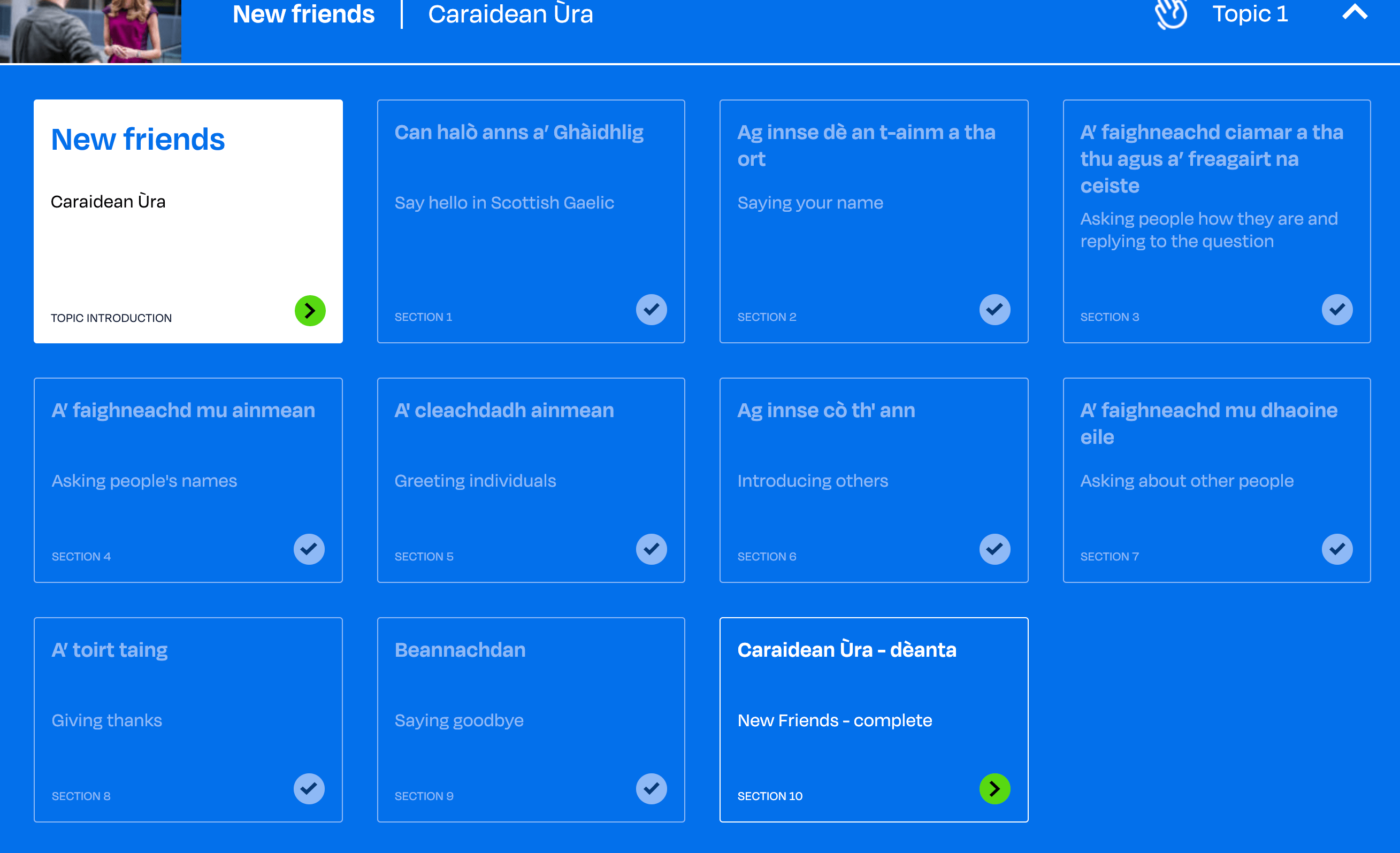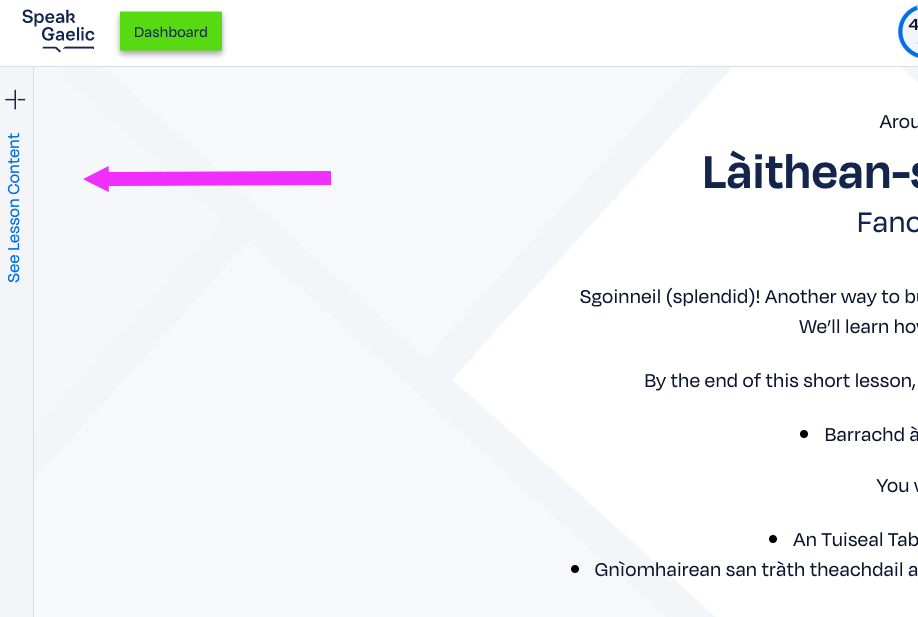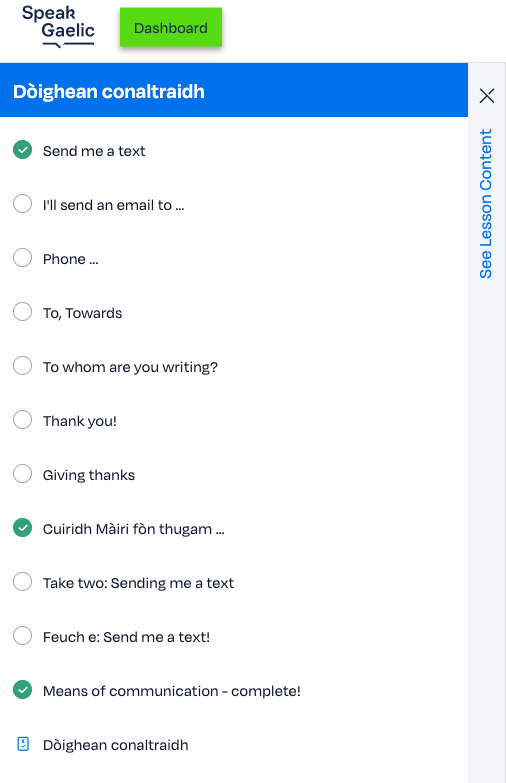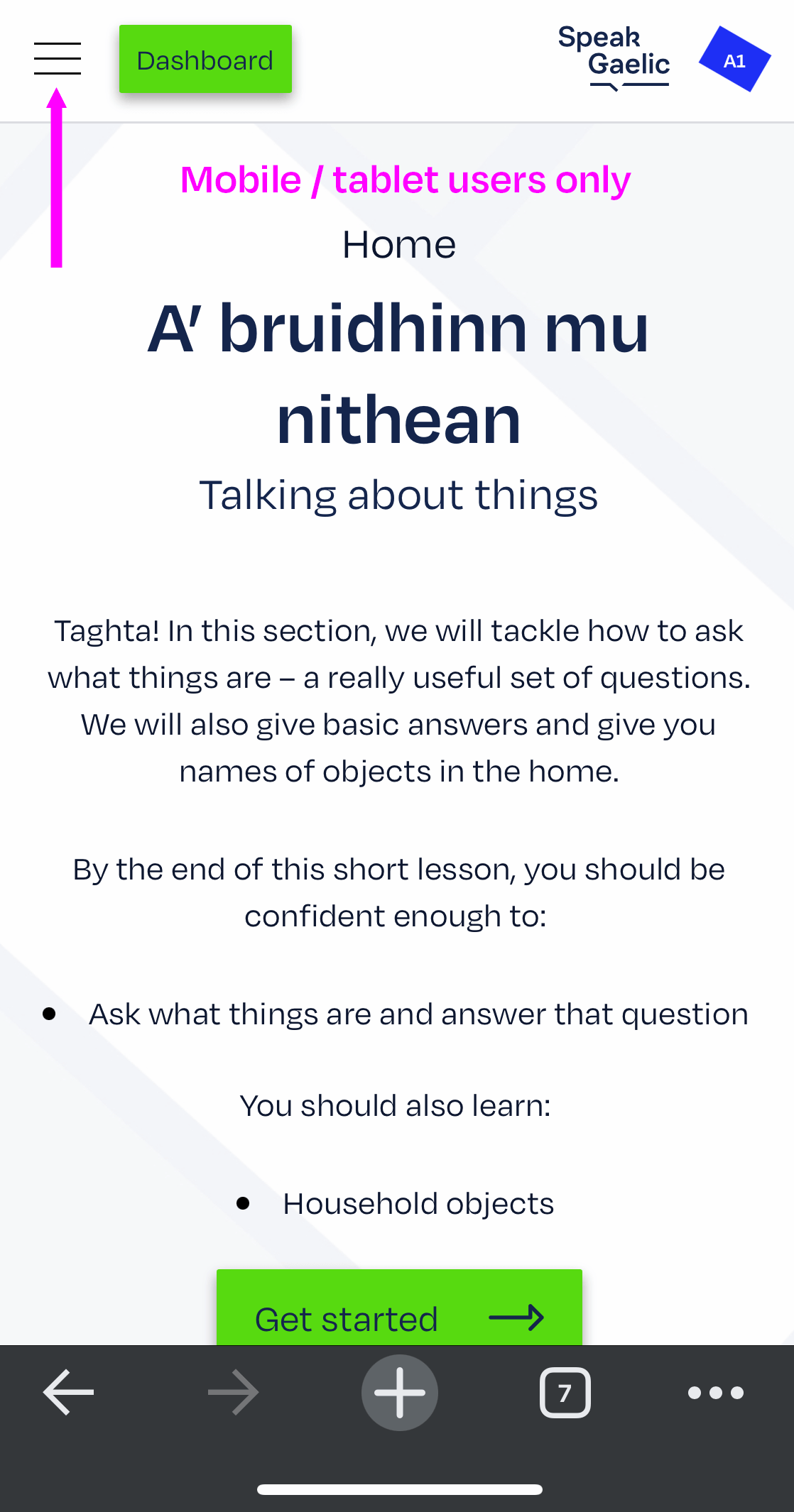Comasach no gun chomas
Able or unable
We can also use comasach air to talk about things that we are able to do, with a particular meaning of a person’s own skill.
Tha mi comasach air càr a dhràibheadh.
I can drive a car.
Tha e comasach dhomh càr a dhràibheadh.
I can drive a car (it’s possible for me to drive a car).
Where we can’t do something or don’t have the ability to do something, we can use the negative form of the verb to be: chan eil.
Chan eil mi comasach air càr a dhràibheadh.
I can’t drive a car.
Chan eil e comasach dhomh càr a dhràibheadh.
I can’t drive a car (it isn’t possible for me to drive a car).
We can also use gun chomas (without ability).
Chan eil mi comasach air dràibheadh an-dràsta.
I can’t drive just now.
Chan eil e comasach dhomh dràibheadh an-dràsta.
I can’t drive just now.
Tha mi gun chomas dràibheadh an-dràsta.
I’m unable to/I can’t drive just now. (I am without the ability to drive just now.)
Comasach
When we describe someone as comasach (able, capable), it’s great praise. Comasach takes on a stronger meaning of capability and, in some cases, talent in a person.
‘S e fear comasach a th’ ann.
He’s a (very) capable man.
‘S e tè chomasach a th’ innte.
She’s a (very) capable woman.
‘S e duine comasach a th’ ann.
He’s a talented person.
Tha i comasach, gun teagamh
She’s (very) capable, without a doubt.




